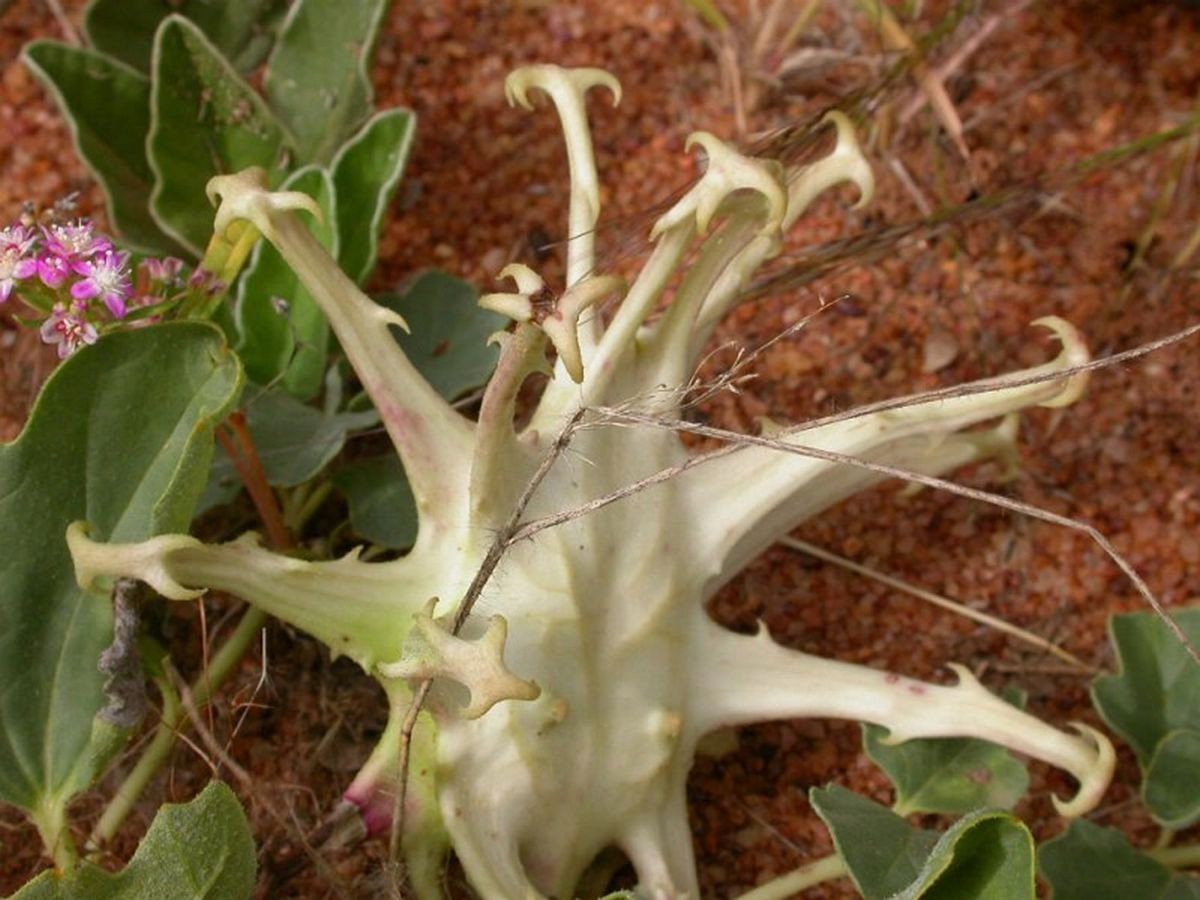
Contents
Devil’s Claw: Benefits, Side Effects, and Who Should Avoid It
Devil’s claw is a natural remedy with a rich history. It is known for its ability to reduce inflammation, prevent bone loss, and alleviate back, arthritis, and neck pain.
Originating from the Kalahari Desert in Africa, Devil’s claw is an herb also referred to as grapple plant, wood spider, or harpagophytum.
Harpagophytum procumbens, or Devil’s claw, is a South African herb. It is a weedy, perennial plant with a succulent tap root, tuber offshoots, and a woody fruit. The plant’s surface and fruit are covered in sharp hooks or claws, which account for its name.
Traditionally, devil’s claw has been used for stomach disorders, joint pain, sprains, and as an anti-inflammatory remedy. In traditional cultures, the wild tubers are harvested, sliced, and dried to make tea. They are also mixed with animal fat to create pain or wound ointments.
Today, devil’s claw supplements, tinctures, and extracts are available over the counter in pharmacies and health food stores. These products are derived from the plant’s root.
The Benefits of Devil’s Claw
Devil’s claw has a long history in natural medicine and modern research suggests it has several benefits.
Reduces inflammation: Devil’s claw contains iridoid glycosides, which give it a bitter taste and anti-inflammatory properties. Studies have shown that devil’s claw extract blocks inflammatory chemicals and genes that promote inflammation.
Alleviates arthritis: Devil’s claw can help lower joint pain and improve function. Research has found that devil’s claw provides similar pain relief to medication in people with knee and hip osteoarthritis.
Eases neck and back pain: Preliminary evidence suggests devil’s claw may also be effective in reducing neck and back pain. Studies have shown improvement in pain symptoms with no serious side effects.
Prevents bone loss: Devil’s claw has shown potential in preventing bone loss associated with osteoporosis, although more research is needed.
Side Effects of Devil’s Claw
Devil’s claw is generally safe in low doses for up to 12 weeks, but there are potential side effects to be aware of.
Digestive problems: Digestive upset, including diarrhea and heartburn, is the most common side effect of devil’s claw. High doses can lead to more severe issues such as stomach or intestinal ulcers and bleeding.
Heart rate and blood pressure changes: Devil’s claw may affect heart rate and blood pressure. There have been reports of high blood pressure and lower sodium levels associated with its use.
Interaction with medications: Devil’s claw can interfere with certain enzymes and proteins that metabolize medications. It is important to consult a pharmacist if you are taking any medications.
Who Should Avoid Devil’s Claw?
While devil’s claw is generally safe, there are certain groups of people who should avoid it:
Children and pregnant or breastfeeding women: Devil’s claw has not been studied for safety in these populations, so it is best to avoid it.
Digestive or heart disease: If you have peptic or intestinal ulcers, acid reflux, gallstones, or heart disease, it is advisable to avoid devil’s claw.
Interaction with medications: Devil’s claw can interact with certain medications, so it is important to speak with your doctor or pharmacist if you are taking any prescribed drugs.
Consult Your Healthcare Professional
Devil’s claw is a traditional remedy with potential benefits for pain relief and inflammation reduction. It is generally safe, but caution should be exercised. Consult your doctor, pharmacist, or a professional herbalist before using devil’s claw.
Sources:
American Botanical Council: "Devil’s Claw"
Brien, S., Lewith, GT., McGregor, G. Database of Abstracts of Reviews of Effects (DARE): Quality-assessed Reviews, "Devil’s Claw (Harpagophytum procumbens) as a treatment for osteoarthritis: a review of efficacy and safety," Centers for Reviews and Dissemination, 2006
Journal of Ethnopharmacology: "Anti-osteoporotic activity of harpagide by regulation of bone formation in osteoblast cell culture and ovariectomy-induced bone loss mouse models"
Journal of Natural Medicines: "Inhibitory effects of devil’s claw (secondary root of Harpagophytum procumbens) extract and harpagoside on cytokine production in mouse macrophages"
Journal of Natural Products: "Harpagoside Inhibits RANKL-Induced Osteoclastogenesis via Syk-Btk-PLC?2-Ca(2+) Signaling Pathway and Prevents Inflammation-Mediated Bone Loss"
Mayo Clinic: "Gallstones"
Memorial Sloan Kettering Cancer Center: "Devil’s Claw"
Molecules: "The Fight against Infection and Pain: Devil’s Claw (Harpagophytum procumbens) a Rich Source of Anti-Inflammatory Activity: 2011–2022"
Mount Sinai: "Devil’s Claw"
National Service: "Acute pancreatitis"
National Institute of Arthritis and Musculoskeletal and Skin Diseases: "Osteoporosis Overview"
Phytotherapy Research: "Molecular targets of the anti-inflammatory Harpagophytum procumbens (devil’s claw): inhibition of TNFa and COX-2 gene expression by preventing activation of AP-1"
U.S. National Library of Medicine MedlinePlus: "Devil’s Claw"
Versus Arthritis: "Devil’s Claw"


